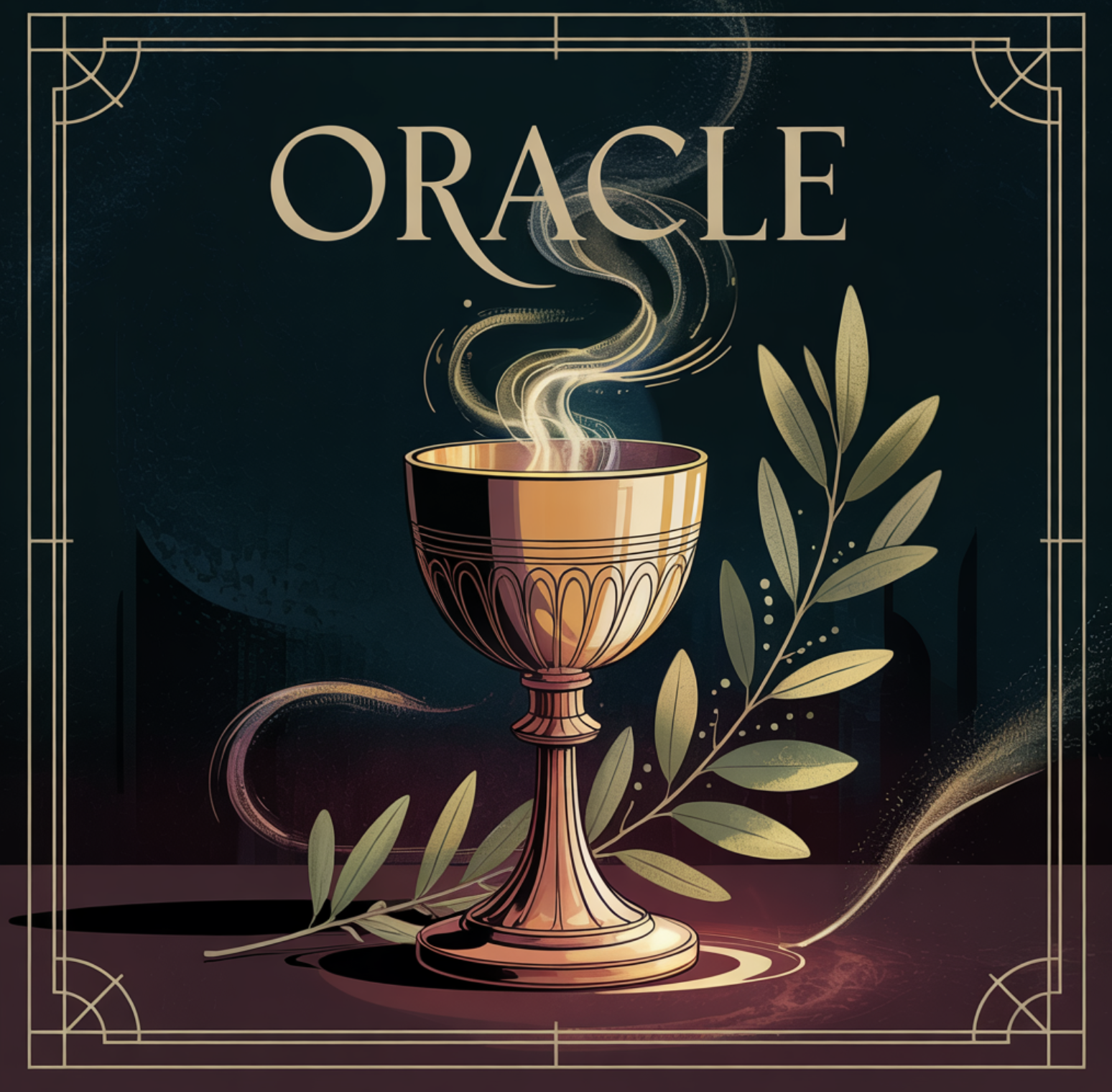ORACLE
A bridge between gods and mortals. A voice from the unseen. A mirror of truth hidden behind veils.
📜 Definition and Origin
The word “oracle” comes from the Latin ōrāculum, which derives from ōrāre, meaning “to speak.”
In ancient cultures — especially in Greece, Rome, Egypt, and Mesopotamia — an oracle referred to:
The sacred site where divine messages were revealed (e.g., the Oracle of Delphi)
The prophetic message itself
The person (usually a priest or priestess) who delivered the message
Thus, the oracle was both place, message, and medium — a concept as layered and mystical as the experiences it produced.
🔥
Function of the Oracle in Antiquity
Oracles played a central role in religious, political, and philosophical life.
They were not fortune-tellers in the modern sense — their utterances were often poetic, symbolic, ambiguous, requiring deep interpretation.
People sought oracles in moments of:
War or peace decisions
Founding of cities
Personal and spiritual crisis
Dreams or visions they couldn’t understand
The most famous oracles included:
Delphi (Greece) — voice of Apollo
Dodona — associated with Zeus and the rustling of sacred oak leaves
Siwa Oasis (Egypt) — consulted by Alexander the Great
Cumae (Italy) — home to the Sibyls, women with visionary powers
🧠
Mechanism of the Oracle
The exact nature of oracular inspiration was often mystical or shamanic.
In many traditions, the oracle would enter a trance state through:
Meditation or fasting
Inhalation of sacred vapors or fumes
Contact with sacred objects (stones, water, fire, etc.)
Dream incubation (in temples or groves)
In this altered state, the oracle became a vessel for divine intelligence — receiving and relaying messages from gods, spirits, or the deep unconscious.
🧭
Symbolism of the Oracle
The Threshold — the oracle stands between worlds
The Voice — words not from self, but from Source
The Mirror — the oracle reveals not the future, but truth within
The Riddle — ambiguity as a test of wisdom
Modern Interpretation and Role in The Pythia Diaries
In modern mysticism, the oracle represents inner knowing, psychic awareness, and soul vision.
Rather than predicting fixed futures, the oracle helps reveal:
Patterns of fate
Inner shadows and truths
Hidden potentials
Multiple timelines and choices
In The Pythia Diaries, the oracle is reimagined as a living presence within the self —
a sacred technology that awakens through love, memory, trauma, and mystical experience.
The protagonist, Anna, learns that the true oracle is not a temple — it is the awakened voice of the soul. She does not speak for the gods — she becomes the meeting point where heaven, earth, and memory collide.


